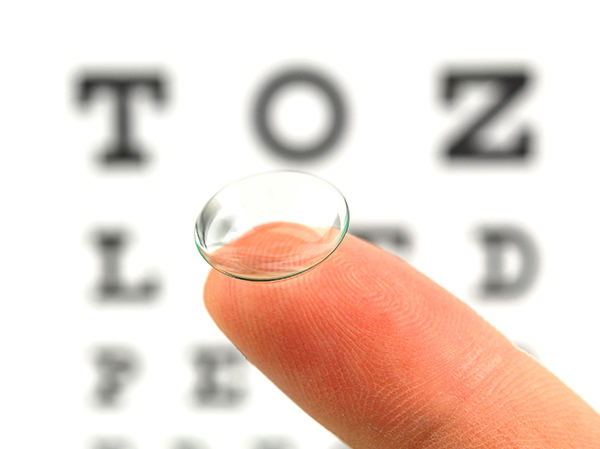
For your convenience, all of our offices are open seven days a week. We welcome walk-ins.
We participate in or accept most union and insurance plans. Please click here for some of the insurances we accept.

While contact lenses are safely worn by many, there is a risk of developing eye infections. Factors that contribute to an infection can include:
The best way to avoid eye infections due to wearing contact lenses is to follow proper lens care guidelines as recommended by your optometrist. You can help reduce the risk of infection by carefully cleaning, rubbing and rinsing your contacts, minimizing contact with water while wearing them and replacing the lens case often.
A corneal ulcer is an erosion or exposed sore on the surface of the cornea. Corneal ulcers are most commonly caused by germs. Other causes of corneal ulcers include viruses, injury and inadequate eyelid closure. Corneal ulcers are common in people who wear contact lenses, especially if they wear them overnight.
Early diagnosis is important in treating corneal ulcers. Your optometrist will ask you questions to determine what caused the ulcer. Your eyes will then be examined with a slit-lamp. A special dye may be placed in your eye to aid in the diagnosis. If it is not clear what the exact cause is, your optometrist may test a sample of the ulcer in order to properly treat it. Treatment for corneal ulcers needs to be aggressive, as some ulcers can lead to vision loss and blindness. Treatment usually involves antibiotics as well as antiviral or antifungal medications. Steroid eye drops may also be given to reduce inflammation. In severe cases, a corneal transplant may be needed to restore vision. If treatment is not administered, there may be blindness or even total loss of the eye.
CLARE is an inflammatory reaction of the cornea and conjunctiva (a thin and transparent membrane that covers the sclera, the white part of the eye). This infection is mostly caused by sleeping with contact lenses and is characterized by awaking with red eyes.
In most cases, no treatment is required. It is recommended that patients discontinue lens wear, which usually remedies the condition. However, if redness or irritation persists after 24 hours, you should see your optometrist. If you experience pain, sensitivity to light or decrease in vision, you should see your optometrist immediately.
CLPC is an inflammatory reaction of the upper eye lid and is very common among those that wear contact lenses.
The symptoms of CLPC include small, red bumps on the inflamed tissue on the underside of the upper eyelids. There is usually itchiness, discharge, increased lens awareness and decreased lens tolerance.
Your optometrist may prescribe pharmaceutical eye drops such as anti-histamines and recommend that you stop wearing contacts until the condition goes away.
